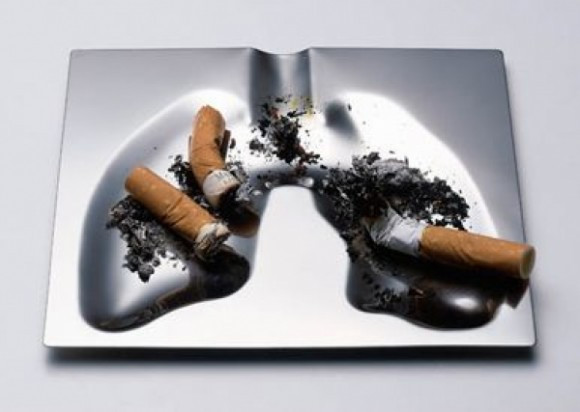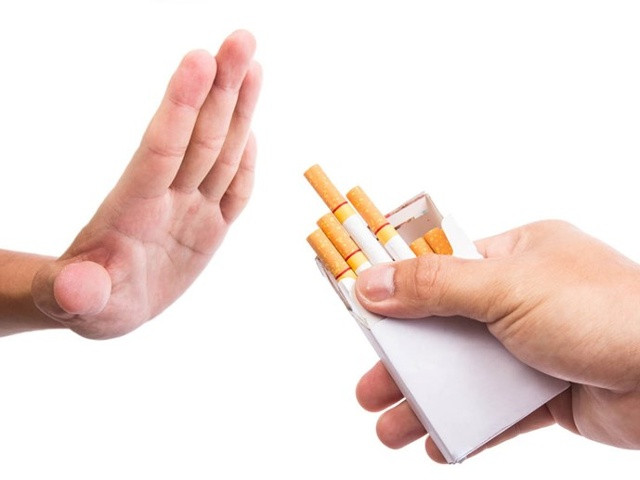The impact of tobacco on public health
(Baonghean) - Everyone knows that smoking is harmful to health. However, the rate of smokers has not decreased, but even increased due to limited understanding of the specific harmful effects of cigarette smoke and incomplete knowledge.
In addition, smoking also reduces the quantity and quality of sperm, leading to infertility in men; increases the risk of uterine cancer, menstrual disorders, and breast cancer in women; and can cause rickets, mental retardation, and malnutrition in children.
Smoking damages almost every organ and system in the body and reduces a person's overall health. Smoking is the leading cause of cancer and cancer death.
 |
When smoking or living with a smoker, the smoke inhaled through the lungs seeps into the blood, accumulating over time and becoming a condition and cause of cardiovascular disease, respiratory infections causing damage to the blood vessels.
Therefore, smokers are susceptible to diseases such as: lung cancer, esophagus, larynx, mouth, throat, kidney, bladder, liver, pancreas, stomach, cervix, colon, rectum as well as acute myeloid leukemia.
Smoking causes heart disease, stroke, aortic aneurysm, chronic obstructive pulmonary disease, diabetes, osteoporosis, rheumatoid arthritis, age-related macular degeneration, and cataracts, and worsens asthma symptoms in adults. Smokers are at increased risk of developing pneumonia, tuberculosis, and respiratory infections.
In addition, smoking causes inflammation and weakens immune function. It also causes hair loss, cataracts, wrinkled skin, hearing loss, tooth decay, yellow nails, cervical cancer, deformed sperm, psoriasis, thrombophlebitis, lung cancer and other organs such as: nose, mouth, tongue, salivary glands, throat, larynx, esophagus, kidney, penis, pancreas...
 |
Smoking affects fertility and sexual dysfunction in men. Men who smoke are at high risk of erectile dysfunction and sexual dysfunction. Smoking reduces sperm production, deforms sperm, reduces sperm motility, and more dangerously, smoking severely reduces blood flow to the penis, causing impotence in some cases.
Smoking affects the reproductive organs of women both during pregnancy and non-pregnancy; the serious effects of smoking often appear during menopause and cause early menopause. Smoking causes these effects because it reduces estrogen levels in a woman's body. Smoking also increases the risk of cervical cancer.
Smoking causes difficulties in conceiving in women. Pregnant women exposed to cigarette smoke are at risk of giving birth to babies with low birth weight, or having ectopic pregnancies, premature births, and babies born with cleft lip and palate.
Children exposed to secondhand smoke have an increased risk of ear infections, colds, pneumonia, and bronchitis. It can also increase the frequency and severity of asthma symptoms in children who have asthma. Exposure to secondhand smoke slows the growth of children's lungs and can cause them to cough, wheeze, and have difficulty breathing.
Secondhand smoke causes illness and premature death in nonsmoking adults and children. Exposure to secondhand smoke can increase the risk of heart disease by an estimated 25-30%. In the United States, exposure to secondhand smoke is responsible for about 34,000 deaths from heart disease each year. Exposure to secondhand smoke also increases the risk of stroke by 20-30%.
QC(Synthetic)
| RELATED NEWS |
|---|




